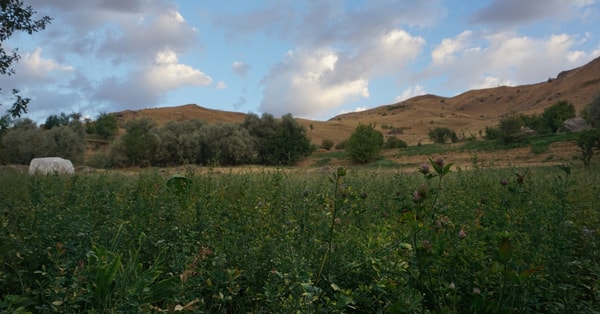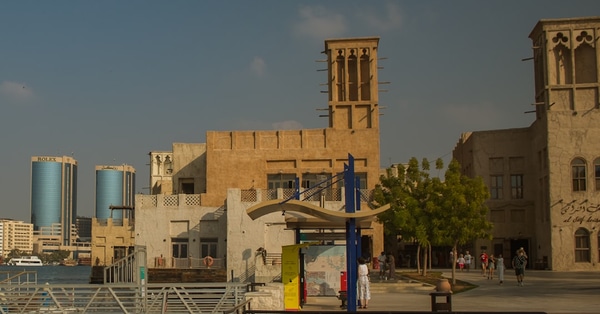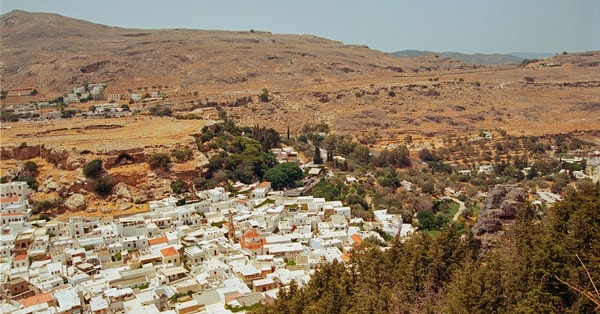Struggles of West Bank Farmers Amid Rising Settler Violence
Farmers in As-Sawiya face violence from settlers, disrupting their crucial olive harvest and threatening their economic and cultural identity.
The picturesque landscape of As-Sawiya, a small town in the northern region of the Israeli-occupied West Bank, is marred by a troubling reality. Surrounded by rolling hills adorned with fields and orchards, the stunning scenery belies the struggles faced by its residents. The annual olive harvest, a crucial cultural and economic event, has been significantly disrupted by violence from Israeli settlers.
The mayor of As-Sawiya, Mahmud Hassan, points to olive groves situated across the highway, highlighting that these lands, owned by local families, are now nearly impossible to access. The threat of violent confrontations with Israeli settlers and security forces looms large, leaving approximately 70% of the town's olive trees unreachable.
“Our olives are everything for us: the backbone of our economy, in our homes, on our tables, in our culture. These last years have brought nothing but misery to us,” remarks Hassan, who is 68 years old.

The challenges faced by As-Sawiya are not isolated; they reflect a broader trend throughout the West Bank. Since the start of October, the Palestinian Farmers’ Union (PFU) has recorded over 50 incidents of violence or destruction linked to the olive harvest. The United Nations has documented even more incidents, noting 86 attacks related to the olive harvest that have resulted in injuries, property damage, or both. This includes several violent occurrences leading up to the official start of the harvest on October 9.
In total, more than 3,000 trees and saplings have suffered damage, and 112 Palestinians have been injured, with 50 of those injuries attributed to settler violence. The UN detailed various forms of aggression, including assaults on farmers while they tended to their groves, theft of their crops and tools, and acts of vandalism against olive trees.
The scope of the violence has expanded alarmingly, impacting 50 villages and towns, which represents a rise from last year’s harvest when there were 80 reported incidents affecting 48 locations and resulting in injuries to 50 Palestinians. Data from the PFU indicates that the frequency of violent incidents has quadrupled, escalating from three or four daily occurrences prior to the recent conflict in Gaza. The PFU stated that these attacks are “not random, but deliberate efforts to undermine Palestinian rural life.”
The situation in As-Sawiya is further complicated by the political climate in Israel, where far-right ministers within the ruling coalition support the settlers. Recently, a bill proposed by far-right lawmakers that would apply Israeli law to the West Bank—a measure akin to annexation—garnered preliminary approval from the Knesset.

In every direction surrounding As-Sawiya, Israeli settlements are visible. Established settlements like Eli and Rehelim have been present for decades, yet signs of expansion are evident in the exposed dirt and rocks around them. Newer outposts, consisting of portable buildings, have emerged, including one set up just over 18 months ago on a nearby ridge, indicative of rapid growth across the West Bank.
The violence has taken a tragic toll on the community. In a recent incident in October 2023, a 40-year-old farmer was shot dead while gathering olives near As-Sawiya, underscoring the grave risks faced by those trying to maintain their livelihoods amidst escalating tensions.
The olive harvest is not merely an economic activity for the residents of As-Sawiya; it is deeply rooted in their culture and identity. Olive trees have long been a symbol of resilience for Palestinians, representing their connection to the land and their heritage. The disruption caused by settler violence threatens not only their economic stability but also their cultural legacy.

Despite the overwhelming challenges, the residents of As-Sawiya remain determined to fight for their rights and protect their agricultural heritage. The olive trees symbolize hope and resistance for the community, serving as a reminder of their struggles and aspirations in the face of adversity.
The plight of farmers in As-Sawiya highlights the broader issues faced by communities across the West Bank. As violence escalates and the olive harvest remains under threat, it is crucial for the international community to recognize the struggles of these farmers. Supporting their rights and advocating for peaceful resolutions is essential to safeguarding not only their livelihoods but also their cultural identity.
Tags:
Related Posts
Start Your DIY Hydroponic Garden: A Beginner’s Guide
Ever dreamed of growing fresh veggies indoors? Discover how to start your own DIY hydroponic garden and enjoy garden-fresh flavors right at home!
Remote Work Trends to Watch in 2024
Curious about what remote work will look like in 2024? Discover key trends and insights that will shape our work lives in the coming year!
5 Proven Tips to Boost Your Focus and Productivity at Work
Struggling to focus at work? Discover five research-backed techniques that can help you sharpen your concentration and elevate your productivity!
Kickstart Your Creativity: A Beginner's Guide to Illustrator
Ready to dive into digital art? Join me on a fun journey through Adobe Illustrator, where I'll help you unleash your creativity, step by step!
E-commerce in 2023: Trends Shaping Our Shopping Future
Curious about how shopping has changed since the pandemic? Discover the latest e-commerce trends and what they mean for your online experience in 2023!
10 Essential Tips for Better Remote Team Communication
Struggling with remote team communication? Discover 10 practical tips that can help your virtual team thrive and connect more effectively.